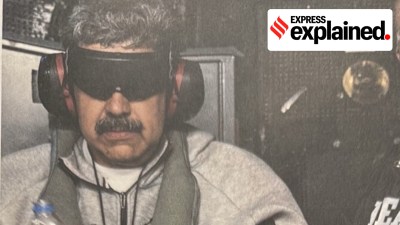Acquired immunity syndrome
The allegations of giving and taking bribes by 3 MPs in the course of yesterday8217;s proceedings brings into focus the law on this point...

The allegations of giving and taking bribes by 3 MPs in the course of yesterday8217;s proceedings brings into focus the law on this point, as laid down currently by the Supreme Court. A Constitutional bench of five judges of the Supreme Court in P.V. Narasimha Rao vs. CBI on April 19, 1998, held by a majority of 3 to 2 in the JMM bribery case that bribe-takers who had voted against the no-confidence motion against government on July 26, 1993 were immune from prosecution but the bribe-givers had no such immunity. Consequently on June 4, 1999, the Special Judge discharged Shibu Soren and nine other MPs.
According to the majority judgment of the Supreme Court, the immunity from prosecution is given by one of the privileges of Parliament in article 105 2 of the Constitution. Article 105 2 states: 8220;No Member of Parliament shall be liable to any proceedings in any court in respect of anything said or any vote given by him in Parliament.8221; The majority view is that a prosecution of an MP who takes bribes and votes in pursuance of the bribe is 8220;in respect8221; of his vote in Parliament and so he cannot be prosecuted. It stated: 8220;To enable members of Parliament to participate fearlessly in Parliament debates members need the wider protection of immunity against all civil and criminal proceedings that bear a nexus to their speech or vote.8221;
Two other judges, on the other hand, held that the immunity to an MP from any proceedings in a court would be available only for the speech or vote he had given in Parliament and not for an act of taking of a bribe that preceded the making of the speech or vote in Parliament even though the act of taking bribes may have a connection with the speech or vote given by him. They held that the crime of conspiracy to bribe is completed with the agreement to bribe independently, whether the member does or does not vote in Parliament, and therefore there is no question of impeaching his speech or vote when he is prosecuted for taking bribes. Even on the view taken by the majority, taking of bribes by an MP without speaking or voting is not protected by privilege from civil or criminal proceedings.
The majority judgment of the Supreme Court encourages corruption at the highest level by the people8217;s representatives in Parliament. No doubt immunity from court proceedings for anything spoken, or for a vote, by MPs in Parliament is necessary for free speech in Parliament. But this immunity of free speech was never intended to shield a member who took bribes for his speech or vote.
Lord Salmon, speaking of this problem in the UK Parliament said 8220;To say that immunity from criminal proceedings against anyone who tries to bribe a Member of Parliament and any Member of Parliament who accepts the bribe stems from Article 9 of the Bill of Rights is a serious mistake.8221; In the UK, Article 9 of the Bill of Rights gives immunity from court proceeding for any speech or vote in Parliament..
Likewise, in a memorable statement, an Australian judge said: 8220;A Member is the watchdog of the public; and Cerberus must not be seduced from vigilance by a sop. I see no reason to doubt that if the prosecution were confined to an agreement as to the action of the member outside the House 8212; action in which the member used his position as member8212;- the agreement would be an indictable conspiracy.8221;
The majority of the Supreme Court acknowledged that this was the widespread view in all countries. However, they drew support from a dissenting judgment of Justice Brennan in the US Supreme Court in the case of Senator Brewster. The majority of the US Supreme Court held that the Senator could be prosecuted for corruption for his speech in the Senate but, according to Justice Brennan, proof of an agreement to bribe must necessarily involve an inquiry into the motives of a member in voting, which was not permissible.
In the UK at one time it was believed there was no offence punishable if an MP took bribes but the opinion now is decisively to the contrary. There is a proposal to have a law in the UK by which a member of Parliament can be punished for corruption and the immunity of free speech would not apply to such a prosecution.
The view of the majority of the Supreme Court was not supported by Parliament itself. In Narasimha Rao8217;s case, the Attorney-General and the Solicitor-General, who generally appear for upholding parliamentary privileges, not only did not support the so-called immunity; they supported the prosecution.
The CBI sought a review of the majority judgment, as it had such far-reaching implications for a clean public life. However, on December 16, 1998, a bench of five judges, three of whom had sat on the earlier apex court bench, dismissed the review because 8220;there was an inordinate delay of 179 days in filing the review petitions and there was no satisfactory explanation for the delay.8221; Much later, on June 1, 2000 the Supreme Court referred the correctness of the Narasimha Rao judgment to a larger bench, which has still not decided the matter.
The sooner the Court reconsiders this majority judgment the better for the probity of our public life.
The writer is a senior advocate and former solicitor-general of India
- 01
- 02
- 03
- 04
- 05































